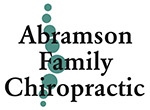Weekly Updates
When Playing an Instrument Causes Musculoskeletal Pain…
Playing-related musculoskeletal disorders (PRMD) are one of the most common issues that affect a musician’s ability to play their instrument and maintain their career. Among a group of 32 musicians with PRMD, those who received six weeks of treatment that included manual therapies—such as those commonly provided by doctors of chiropractic—reported greater improvements in pain…
Read MoreTreatment for Chronic Low Back Pain
A recent randomized-controlled trial found that the combination of patient education and soft tissue mobilization is effective for improving pain and disability in patients with chronic low back pain with central sensitization (hypersensitivity to stimuli from things that are not usually painful). Doctors of chiropractic often include patient education and soft tissue mobilization in a…
Read MoreMid-Back Pain?
In a recent experiment that included 100 patients with mid-back pain, those who received eight treatments that included a combination of thoracic spinal manipulative therapy and therapeutic exercises experienced better outcomes than participants in a therapeutic exercise-only group. Doctors of chiropractic often utilize a multimodal treatment approach when managing mid-back pain that includes manipulative therapy…
Read MoreWhole-Body Vibration and Neck Pain
According to a recent study that included 805 working age adults found that exposure to whole-body vibration for more than 50% of a workday is associated with an increased risk for neck pain in men, but not women. The finding adds to a growing body of research linking occupational exposure to whole-body vibration and musculoskeletal…
Read MoreSpinal Pain Is Common in Basketball Players
According to a recent systematic review and meta-analysis, nearly half (43%) of amateur and professional basketball players note spinal pain with the neck as the most commonly affected region of the spine. Presently, nearly all professional sports teams in the United States have a chiropractor on staff to help manage musculoskeletal conditions in their players,…
Read MoreMany Chiropractic Patients May Have Already Tried Surgery
Using data from a 110-million patient network in the United States, researchers report that 10.8% of patients who received chiropractic spinal manipulation had at least one prior spine surgery. Cureus, April 2023. Hazardous Seaweed on Course to Florida’s Coast Scientists report that a floating mass of sargassum seaweed is on course for Florida’s coastline, which…
Read MoreMigraine Patients Often Have Neck Problems
Patients with a history of migraine headaches often report pain, hypersensitivity, and reduced range of motion in the neck. Past studies have demonstrated that treatment to address cervical musculoskeletal disorders in migraineurs can reduce the frequency, duration, and intensity of their headaches. Musculoskeletal Science & Practice, June 2023 Teen Birth Rate Hits Historic Low The…
Read MoreManaging a Lumbar Disk Herniation with Radiculopathy
A recent study found that the combination of Mulligan’s mobilization and neurodynamic mobilization is an effective treatment for improving functional mobility and quality of life in patients with chronic lumbar disk herniation that radiates pain into the leg. Doctors of chiropractic are trained in the application of several manual therapies for the management of lumbar…
Read MoreWrist Manipulation Helps Patients with Tennis Elbow
For patients with lateral epicondylitis—also known as tennis elbow—a recent study found that manipulative therapy applied to the wrist may improve grip strength. The finding suggests that dysfunction in the wrist may contribute to tennis elbow, and the wrist should be evaluated in patients seeking care for the condition. Journal of Hand Therapy, March 2023…
Read MoreUpper Cervical Manual Therapy Benefits TMD Patients
A systematic review and metaanalysis that included eight randomized controlled trials concluded that mobilization and manipulative therapy applied to the upper cervical spine reduces jaw pain and improves maximal mouth opening in patients with temporomandibular disorders (TMD). The finding adds to a growing body of research establishing a connection between TMD and disorders of the…
Read More









